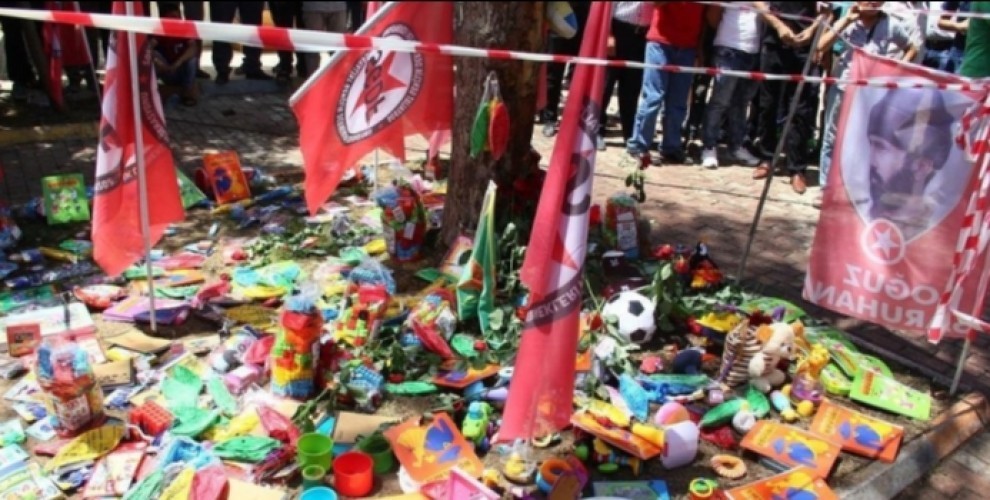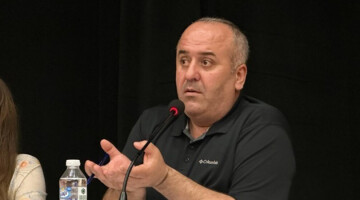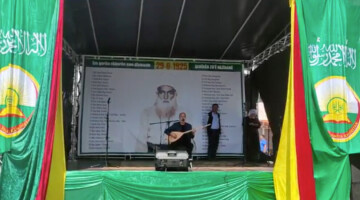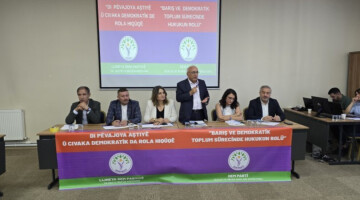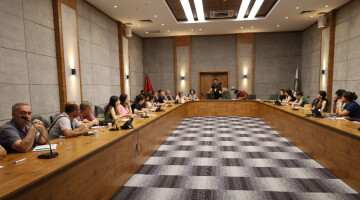For three years, the survivors of the ISIS massacre of July 20, 2015 in Suruç, have insisted on justice and face continuous repression. Dozens of people who survived the attack were arrested as were their attorneys within the past three years. The graves of victims have also been vandalized.
At a time when Turkish President Tayyip Erdoğan built his one-man regime with war, massacres, murders and a political extermination campaign, on 30 October 2014, the National Security Council adopted a plan to crush the Kurdish liberation movement. One of the ensuing massacres was the one in Suruç. After the Rojava revolution and the HDP's successful elections on June 7, 2015, Erdoğan evidently made several bloody attacks in the country out of revenge for the so-called Islamic State.
On July 20, 2015, a suicide attack took place in Suruç when, on appeal by the Federation of Socialist Youth Associations (SGDF), 300 young people gathered at the Amara Cultural Center to hold a press conference prior to their departure for Kobanê. The planned trip to Kobanê was meant to be an act of solidarity. The young people wanted to bring toys and humanitarian aid to the city destroyed by the ISIS. ISIS assassin Abdurrahman Alagöz blew himself up and killed 33 people. Over a hundred people were injured.
Following this massacre, the Turkish state used the unsolved murder of two police officers in Ceylanpınar as an excuse to end the peace talks with Abdullah Öcalan as a representative of the Kurdish liberation movement and launched mass air attacks on Qendîl, Zap, Metîna, Garê, Haftanîn, Avaşîn and Xakurkê.
The Suruç massacre marked the beginning of a bloody period. Erdoğan did everything to cover up the background of the massacre. An arrest wave did not start against the ISIS, but against members of the HDP and SGDF. Hundreds of people were detained and arrested in dozens of cities.
The investigation file for the attack was placed under confidentiality. Only 18 months later, charges were brought. The prosecution demanded 104 years in prison for Yakup Şahin, who was arrested in Ankara for the October 10, 2015 attack, and Deniz Büyükçelebi and İlhami Ballı, who were alleged to be in Syria. The trial began 21 months after the attack, on 4 May 2017.
Police chief Mehmet Yapalal was fined because it turned out that the suicide bomber was known to the police who had expected an attack. For the fine an installment payment was granted.
On March 26, 2018, a hearing was held in the trial of two other police officers for abuse of office and negligence. One of the accused police officers, Ali Koçak, who is in custody, testified at the trial that the police had been informed of the suicide bomber and had not taken any action. There has been no positive development in the three-year process. So far, the investigating prosecutor and the judges were exchanged three times.
The backers of the Suruç massacre are still unclear. The relatives of the victims, the survivors, witnesses and lawyers are constantly confronted with detentions and arrests. Lawyers Özlem Gümüştaş, Sezin Uçar and injured survivors Havva Cuştan, İlke Başak Baydar, Mazlum Demirtaş, Koray Türkay and Ali Deniz Esen were arrested.
In order to intimidate the family members relentlessly demanding justice, the state has even let the graves of the victims be attacked. In this scope, the grave of Veysel Özdemir in Amed was attacked twice. Even the grave of twenty-year-old Ece Dinç was attacked by a group of 15 and the red flag on her grave was burned.
The grave of English teacher Süleyman Aksu in Yüksekova was vandalized. The house of his family was also destroyed during the curfew in Yüksekova after the massacre, and the family had to flee.
Şennur Ayaz Ünlü, mother of Polen Ünlü, who died in the attack, died of a heart attack in April 2018, without having learned justice for her daughter. She was buried next to her daughter's grave.
The survivors of the Suruç massacre continue to gather in the Kadıköy district of Istanbul on the 20th of each month to demand justice.
Today, on the third anniversary of the bloody attack, victims of the massacre have been commemorated where they were killed, at Amara Cultural Center in the Suruç town bordering Rojava.
HDP (Peoples’ Democratic Party) deputies and officials from surroundings cities, DBP (Democratic Regions’ Party) executives, Peace Mothers and a number of people attended the commemoration.
Speakers called for an end to massacres in Turkey and vowed to make their dreams a reality.


